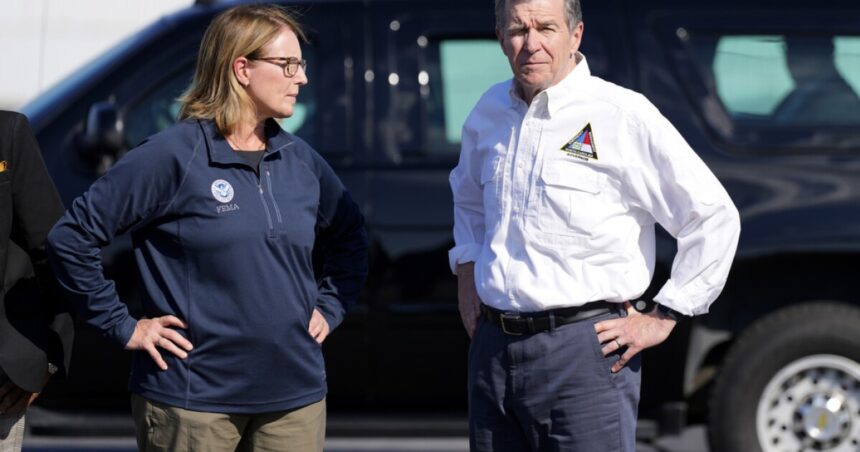North Carolina Gov. Roy Cooper has approved over $600 million in disaster relief funding for western North Carolina counties affected by Hurricane Helene, following the passage of the recovery bill by legislators the day before.
This bill represents the second round of recovery funding for western North Carolina, with the initial relief package of $273 million being passed earlier this month by the General Assembly. The aim is to address the $53 billion in damages and recovery needs in the region caused by Helene.
“Western North Carolina requires significant investments to fully recover from the worst storm our state has ever experienced,” stated Cooper on Friday. “Legislators have taken a step in the right direction, and should follow up with a more comprehensive package to assist families, businesses, and communities in rebuilding stronger.”
RELATED STORY | National Hurricane Center monitoring AL94 as next possible tropical storm
Helene caused widespread devastation in western North Carolina, resulting in 1,400 landslides and damage to over 160 water and sewer systems, according to the state budget office. It also disrupted transportation networks by damaging at least 6,000 miles of roads and more than 1,000 bridges and culverts across the region.
There have been 98 reported storm-related deaths in North Carolina, according to state officials.
The latest recovery bill includes funding efforts such as $50 million for small business loans, $100 million in loans for water repairs by local governments, and $5 million for mental health resources for public school students.
RELATED STORY | Why do some people choose to stay put during dangerous hurricanes?
The approved amount on Thursday falls short of the $3.9 billion requested by Cooper to assist businesses, agriculture, and utility repairs. Republican legislative leaders have stated they will review Cooper’s funding request in the coming weeks, as the General Assembly is set to reconvene on Nov. 19.
“The evaluation of necessary actions is ongoing,” said Senate leader Phil Berger on Thursday. “At this moment, we have allocated sufficient resources to address immediate needs with time sensitivity.”
Additionally, legislators passed a separate bill into state law on Thursday mandating the establishment of at least one early in-person voting site for every 30,000 registered voters in 13 western North Carolina counties as soon as possible. This local bill did not require Cooper’s approval.





